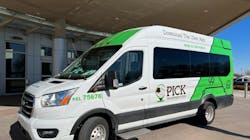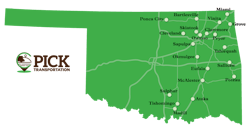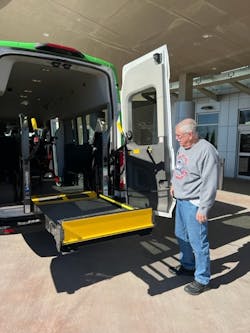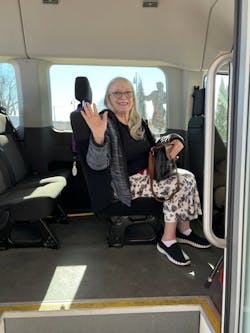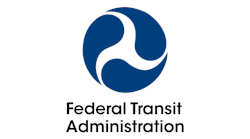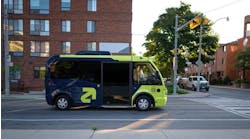Oklahoma Pilot Program Providing Reliable Door-to-Door Public Transit Service
For individuals who rely on public transit to go to and from work, doctor’s appointments and other personal needs, finding reliable, door-to-door public transit can be a challenge. In less urban areas, such as parts of Oklahoma, transit dependent individuals faced limited booking options for service, a lack of service that was fully compliant with the Americans with Disabilities Act (ADA) and an inability to be spontaneous with their travel plans.
However, a pilot program, PICK Transportation, is aiming to resolve those challenges. In late 2018, leaders from transit agencies across the rural part of Oklahoma, including Cimarron Transit, JAMM Transit, the KI BOIS Area Transit System and Pelivan Transit, came together to create an on-demand service developed with rider input to address the challenges individuals said they faced while using public transit.
The pilot program started in the middle of the COVID-19 pandemic in 2021 with a $1.5 Integrated Mobility Innovation grant from the Federal Transit Administration (FTA). The pilot will run until March 2023.
Kendra McGeady, the transit director for Pelivan Transit, said every leader working on the PICK project wanted to make sure PICK truly stood out from other door-to-door transit agencies around the country. To successfully complete their goal, PICK leaders sent surveys out to riders of their own agencies to see what their dream transportation system would look like.
“Almost all rural providers operate in a pre-book environment, which is how myself and the other partners operate our separate agencies as well,” McGeady said. Our riders wanted to see a more quick and on-demand service with more service hours after the typical 9-5, Monday-Friday hours that most services operate under.”Laura Corff, the transit director for Cimarron Transit, has worked in the transit industry for 24 years. In her two-plus decade career, she said her main goal has been to work with individuals with disabilities and those without vehicles to provide door-to-door reliable service, and that was her main goal with the PICK project.
“It has always frustrated me that an individual with a disability or without a vehicle is stuck at home if they don’t have reliable transportation,” Corff noted. “What makes PICK so unique is we are fully ADA compliant, unlike Uber or Lyft. With paratransit, there could be a lot of wait time. With us, there’s only a seven-minute wait time.”
PICK Transportation currently serves just under 23,000 square miles, which covers nearly all of eastern and southern Oklahoma and runs from 5 p.m. to 10 p.m. on weekdays and 10 a.m. to 2 p.m. on Saturdays, giving residents with irregular schedules the ability to use public transit to commute to wherever they need to go late at night and on the weekends.
Patricia Dinoa, the mobility manager for the PICK project, reviews the data behind each of PICK’s partners weekly. The data shows trends in ridership by agency. Each agency is then broken down into ridership numbers both weekly and monthly. Dinoa compares the numbers from when the pilot program first started to the current day.
“There’s no data that suggests more riders use the service more on a certain day of the week or weekend because of the spontaneous nature of the service,” Dinoa said. "Some months may see an increase in ridership on a Tuesday, and then the next month, Tuesday may be the lowest day of ridership.”
Dinoa added the peak of ridership each weekday occurs between 5 p.m. and 6 p.m., and the two most common places people request to be taken for rides is work and shopping centers.
One of the biggest data points Dinoa is currently looking into is the service lines in the JAMM Transit area.
“We're analyzing the ridership in that area to see if all the service area they are included in is exactly where it needs to be, or if we need to possibly stop serving certain areas and start changing the boundaries of the service area depending on the riders' needs,” Dinoa noted.
In a world where everybody seems to have access to a smart device with an app, PICK Transportation realized that would not be the case with riders using its services, including older adults and people with disabilities. While PICK has an app users can download and use, there’s also a universal phone number individuals can call that connects to the program’s call center.
McGeady believes the call center is vital to the service’s success.
“There’s one number for the entire region of Oklahoma, and we have staff on hand that can assist individuals with booking rides,” McGeady points out. “Between the app and the call center, there’s a number of different ways people can book trips.”
Corff said she is surprised at how many riders use the call center over the PICK app.
“When we first started the program, I assumed most people would have used the app to schedule their rides even though we had the call center available as another option, but we've seen people are used to calling for their rides, and so they have a level of comfort,” Croff said. “If there’s a problem with their ride, they can call the call center back, and they’ll know it’s coming because they have heard the ride has been accepted. It's definitely a peace of mind thing for sure.”
Dinoa believes PICK is successful because of the way the agencies communicate with each other.
“Sometimes, there is an intersection of service areas because two areas are so close together,” Dinoa noted. “The beauty of this program is the transit agencies communicate so well, and they don't have anything that prevents the other transit agency from going into their area to pick up a rider if necessary. Our goal is to move people. We want them to go where they want to go, and if it is necessary that another transit agency comes in and picks up that rider to take him or her to their destination, they will do it.”
“Since day one when me and the other transit agency leaders started this project, we set the ground rules,” Dinoa continued. “We communicate with each other and our agency’s so well. If there are any problems, we talk about them at our monthly meetings. There’s a lot of pilot programs out there that feature one program and one transit agency. We have one program and four transit agencies, so that communication is what makes PICK successful.”
The current fare for trips is $3 each way, which the program developers recognize can become expensive, especially for riders who use the service multiple times daily. McGeady says PICK does not have a specific program in place to help pay for funds, but the service does pull from her fare support experience at Pelivan Transit.
“At Pelvan Transit, we are fortunate we have a 501 (c) (3) through the Grand Gateway Economic Development Association Foundation. We also have some private funders who help us kick in money for our veteran’s program, but we have certain funders who will just give a certain amount every month, and we do pull from our foundation to help people who can't meet because public transit is expensive,” McGeady acknowledged.
While the current program is operating as a pilot, the leaders behind the PICK Program are willing to adjust, expand or add more partners to ensure the project can remain successful beyond March 2023. McGeady notes she’s looking forward to seeing the door-to-door public transit service expand throughout the entire state of Oklahoma.
“In the next six months to a year, I’m hoping we can add around five new partners and new transit systems added to the service area,” McGeady said.
Corff is hoping to expand PICK’s hours into the daytime.
“After the pilot portion ends in March, most of our services are looking to expand into the day,” Corff stated. “Not necessarily as an all-day transportation system, but we’re looking at high-volume times, which could mean starting at 3 p.m. on the weekdays instead of 5 p.m.”
Corff would also like to expand services to let agencies cross county lines, which would be a big feature for PICK, as not a lot of agencies across the U.S. cross county lines. She knows that could be a challenge due to city limits and restrictions.
In terms of how the leaders of the project are going to continue to fund PICK after the pilot program concludes, Corff admits it’s been weighing on all of her colleagues.
“That’s been the cause of some sleepless nights,” she said while noting the project does have funds from the FTA’s Formula Grants for Rural Areas Program (Section 5311).
“There’s going to be a bit of a transition,” Coriff added. “We’ll probably have to share expenses, and we may have to switch to a new app that has a lesser cost to operate, but the call center will remain the same.”
The PICK leaders know they have a bright future ahead of them once the pilot program concludes in March. While they believe the pilot has been successful, they know the work has just begun to make PICK a top transit option in Oklahoma. With the PICK project, they feel they have accomplished their goal of making a reliable transit option for people with all different types of transportation needs.

Brandon Lewis | Associate Editor
Brandon Lewis is a recent graduate of Kent State University with a bachelor’s degree in journalism. Lewis is a former freelance editorial assistant at Vehicle Service Pros in Endeavor Business Media’s Vehicle Repair Group. Lewis brings his knowledge of web managing, copyediting and SEO practices to Mass Transit Magazine as an associate editor. He is also a co-host of the Infrastructure Technology Podcast.
